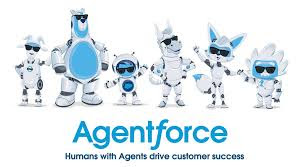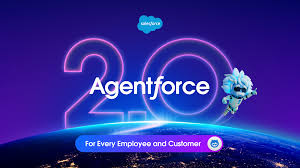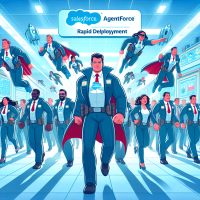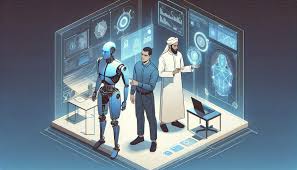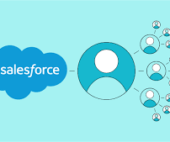Generative Artificial Intelligence (GenAI) continues to reshape industries, providing product managers (PMs) across domains with opportunities to embrace AI-focused innovation and enhance their technical expertise. Over the past few years, GenAI has gained immense popularity. AI-enabled products have proliferated across industries like a rapidly expanding field of dandelions, fueled by abundant venture capital investment. From a product management perspective, AI offers numerous ways to improve productivity and deepen strategic domain knowledge. However, the fundamentals of product management remain paramount. This discussion underscores why foundational PM practices continue to be indispensable, even in the evolving landscape of GenAI, and how these core skills can elevate PMs navigating this dynamic field. Why PM Fundamentals Matter, AI or Not Three core reasons highlight the enduring importance of PM fundamentals and actionable methods for excelling in the rapidly expanding GenAI space. 1. Product Development is Inherently Complex While novice PMs might assume product development is straightforward, the reality reveals a web of interconnected and dynamic elements. These may include team dependencies, sales and marketing coordination, internal tooling managed by global teams, data telemetry updates, and countless other tasks influencing outcomes. A skilled product manager identifies and orchestrates these moving pieces, ensuring product growth and delivery. This ability is often more impactful than deep technical AI expertise (though having both is advantageous). The complexity of modern product development is further amplified by the rapid pace of technological change. Incorporating AI tools such as GitHub Copilot can accelerate workflows but demands a strong product culture to ensure smooth integration. PMs must focus on fundamentals like understanding user needs, defining clear problems, and delivering value to avoid chasing fleeting AI trends instead of solving customer problems. While AI can automate certain tasks, it is limited by costs, specificity, and nuance. A PM with strong foundational knowledge can effectively manage these limitations and identify areas for automation or improvement, such as: 2. Interpersonal Skills Are Irreplaceable As AI product development grows more complex, interpersonal skills become increasingly critical. PMs work with diverse teams, including developers, designers, data scientists, marketing professionals, and executives. While AI can assist in specific tasks, strong human connections are essential for success. Key interpersonal abilities for PMs include: Stakeholder management remains a cornerstone of effective product management. PMs must build trust and tailor their communication to various audiences—a skill AI cannot replicate. 3. Understanding Vertical Use Cases is Essential Vertical use cases focus on niche, specific tasks within a broader context. In the GenAI ecosystem, this specificity is exemplified by AI agents designed for narrow applications. For instance, Microsoft Copilot includes a summarization agent that excels at analyzing Word documents. The vertical AI market has experienced explosive growth, valued at .1 billion in 2024 and projected to reach .1 billion by 2030. PMs are crucial in identifying and validating these vertical use cases. For example, the team at Planview developed the AI Assistant “Planview Copilot” by hypothesizing specific use cases and iteratively validating them through customer feedback and data analysis. This approach required continuous application of fundamental PM practices, including discovery, prioritization, and feedback internalization. PMs must be adept at discovering vertical use cases and crafting strategies to deliver meaningful solutions. Key steps include: Conclusion Foundational product management practices remain critical, even as AI transforms industries. These core skills ensure that PMs can navigate the challenges of GenAI, enabling organizations to accelerate customer value in work efficiency, time savings, and quality of life. By maintaining strong fundamentals, PMs can lead their teams to thrive in an AI-driven future. AI Agents on Madison Avenue: The New Frontier in Advertising AI agents, hailed as the next big advancement in artificial intelligence, are making their presence felt in the world of advertising. Startups like Adaly and Anthrologic are introducing personalized AI tools designed to boost productivity for advertisers, offering automation for tasks that are often time-consuming and tedious. Retail brands such as Anthropologie are already adopting this technology to streamline their operations. How AI Agents WorkIn simple terms, AI agents operate like advanced AI chatbots. They can handle tasks such as generating reports, optimizing media budgets, or analyzing data. According to Tyler Pietz, CEO and founder of Anthrologic, “They can basically do anything that a human can do on a computer.” Big players like Salesforce, Microsoft, Anthropic, Google, and Perplexity are also championing AI agents. Perplexity’s CEO, Aravind Srinivas, recently suggested that businesses will soon compete for the attention of AI agents rather than human customers. “Brands need to get comfortable doing this,” he remarked to The Economic Times. AI Agents Tailored for Advertisers Both Adaly and Anthrologic have developed AI software specifically trained for advertising tasks. Built on large language models like ChatGPT, these platforms respond to voice and text prompts. Advertisers can train these AI systems on internal data to automate tasks like identifying data discrepancies or analyzing economic impacts on regional ad budgets. Pietz noted that an AI agent can be set up in about a month and take on grunt work like scouring spreadsheets for specific figures. “Marketers still log into 15 different platforms daily,” said Kyle Csik, co-founder of Adaly. “When brands in-house talent, they often hire people to manage systems rather than think strategically. AI agents can take on repetitive tasks, leaving room for higher-level work.” Both Pietz and Csik bring agency experience to their ventures, having crossed paths at MediaMonks. Industry Response: Collaboration, Not Replacement The targets for these tools differ: Adaly focuses on independent agencies and brands, while Anthrologic is honing in on larger brands. Meanwhile, major holding companies like Omnicom and Dentsu are building their own AI agents. Omnicom, on the verge of merging with IPG, has developed internal AI solutions, while Dentsu has partnered with Microsoft to create tools like Dentsu DALL-E and Dentsu-GPT. Havas is also developing its own AI agent, according to Chief Activation Officer Mike Bregman. Bregman believes AI tools won’t immediately threaten agency jobs. “Agencies have a lot of specialization that machines can’t replace today,” he said. “They can streamline processes, but



